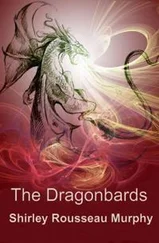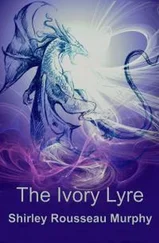At the far shore, close to the caves, she dove again and peered into shadowed grottoes. Then, in a little pool beneath snowbanks she floated on her back staring up through steam and past ice-crusted cliffs at the first stars. When she rolled over again, a vision came so suddenly and sharply it shocked her. So clear, so very real! She stood in a hut made all of saplings, stood beside a center fire pit and held a babe in her arms; the love and warmth that filled her was nearly too much to bear. A babe urgently important, not only because of the love she felt, but because of much more; though what, exactly, she could not sense.
The vision vanished. She floated between icy banks, feeling the loss of that child like a wound.
Whose child? Whose child had it been? And when, in what time?
She swam back at last to the white hill. She could see now that the window through which she had come was partly hidden from the lake by a jutting snowbank. When she stepped from the water, the icy air made her tingle. She pulled on her robe and made her way absently through the snow, thinking of the child she had held.
Once inside she returned to the large hall dressed in the long fur robe and fur slippers, deliciously soft against her clean skin. The low table had been set with wooden plates and with a loaf of warm new bread, a pot of ale, a garnish of some pale, long-leafed vegetable that she did not recognize, and the steaming stewpot set on a metal trivet. She settled herself on cushions opposite Canoldir and looked around the room with appreciation.
Canoldir’s weapons hung beside the fireplace: a fine sword, knives, a beautiful bow, arrows with game tips. Canoldir watched her careful appraisal. “There is game on these snowy peaks, Skeelie. Stag and small deer and a great cow-like animal that wanders the snowbanks in search of moss. There are sheltered valleys where they can dig deep for fodder, and valleys where the burning heart of the mountain gives forth heat enough for the grass to grow thick. There is game in plenty, and I speak a prayer for them when I must kill them.”
She saw then that across the mantel, beneath Canoldir’s weapons, were carven five faint lines of words. She rose, stood before the blazing fire to read them.
Those who have torn away the seams of Time,
through the repetition of their birth upon Ere itself,
can move through the tapestry of Time
and can weave new powers into the intricate fabric
of the one power.
When she turned, Canoldir was dishing up the stew. She watched him, caught up in the words. What was their meaning? So like the tree man’s words, One of the few born to weave a new pattern into the fabric of the world.
She came to the table abstracted, seated herself on the low cushion with her feet tucked under her robe. The stew smelled wonderful, rich and brown. Canoldir cut bread for her, said quietly, “Why do those words worry you? Do you not understand them?”
“I’m not sure. That—that most are born again in different lives, some in different worlds, some born twice upon Ere? But then . . .” She saw that Ram had read the words, and waited for him to speak.
“Those born again on Ere have woven a new pattern into the warp of powers. You, me, Telien, Anchorstar have woven a new pattern that can reach through Time.” Ram looked to Canoldir for agreement.
“But then the wraith . . .” Skeelie began. “The wraith makes a new pattern yet again. And, I would hope, not a lasting pattern, but one that will fray and fade.” Canoldir reached to refill their mugs with hot brew.
“But why were we born a second time upon Ere?” Skeelie said. “And the Luff’Eresi are so born, too? I don’t—”
“The Luff’Eresi are a different matter,” Canoldir said, watching her. “The Luff’Eresi are not, as were you and Ram, born a second time of the same race.” He saw her puzzlement. “Nothing made the repetition of your birth, Skeelie. Your birth is chance, only chance. The repetition is a new thread woven into the warp of an incomprehensible pattern. A pattern born of chance, but fitting and meaningful beyond anything we can imagine.”
They ate in silence for some time, Ram and Skeelie puzzling over questions that interlocked even as the forces that touched them interlocked. At last Canoldir began to speak again, to speak of Time and of things both strange and familiar, then soon of things so remote that both Ram and Skeelie were caught with fascination in the rising web of his words. And as he spoke his moods were as changing as quicksilver, and with each mood, his face, his whole presence changed. He might have been a dozen men, some terrifying in their fury when he spoke of the dark Seers or of evils across Ere, some as innocent and filled with joy as a young colt. When there was joy, Canoldir’s dark eyes shone with clear light. When he spoke of evil upon Ere, his eyes were a killer’s eyes.
He showed them Time in so far distant a past that humans had not yet come into Ere, a time when only the triebuck and the great cats, the snow tigers and white-horned beasts and animals with long slim necks and hides like saffron roamed Ere. And great dark beasts, neither bull nor bear, dwelt among the woods and fields of Ere; and then his eyes laughed with pleasure. He showed them a time when the first Cherban peoples came into Ere from across the sea, just as the old myths told, and sank their ships at the point of Sangur’s coast in solemn ritual and spoke no more of those ships or of the land from whence they had come. He showed them the Cherban making settlements along Ere’s coasts, and then showed the Cherban decimated by death and slavery as the first Herebian raiders came down out of the high desert lands. He showed them the young Cherban herder, Ynell, who was the first in whom the Seer’s powers rose, the first to speak with the gods; and then they saw how the Seeing grew among the Cherban peoples from that latent talent, suddenly catching fire among them at Ynell’s persecution and at the growing threat from the Herebian raiders. “But that,” Canoldir, said, “that was long ago.”
Then he showed them, abruptly, a vision of Telien that made Ram catch his breath and draw away from them in painful silence.
“Yes, Ramad, you search for Telien. You search for the wraith of the dead Yanno, who gave his soul to the drug MadogWerg in the caves of Kubal. Who would have destroyed Anchorstar and many more, except for the skill of a few young Seers—young Seers wielding the runestone that Telien brought with her out of Tala-charen.”
Ram stared at him. “The runestone she . . . but then that runestone is found!” He watched Canoldir, perplexed. “She had—she did not remember.”
“Telien did not—will not find it. And that time is yet to come, Ramad, in the way of your lives. I could tell you that that runestone is found in that future time; and yet all Time can change at the whim of forces that even I—who move outside of Time—cannot understand truly. Let us say that that stone is, in all likelihood, found.” He paused, watching them; then idly he began to brush the crumbs from the sliced bread into a little heap and spread them out with one deft movement of his palm, began to draw in the thin veil of crumbs, one thin line across, bisected by another. When he looked up at last, he had scribed the little circle of crumbs into nine sections, eight fanning out, and one in the center. Ram sat staring at the sketch. Skeelie was silent, following Ram’s thoughts. Just so had the shattered runestone of Eresu lain in Ram’s palm, in nine jagged pieces. “It had a center stone,” Ram said with amazement. “I remember now; but I did not remember. I remembered well that there were nine shards of jade, but not that one was a center stone. Gone. Gone from my mind. I see it clearly now, one long, oval stone. The center—the core of the runestone.” He raised his eyes to Canoldir. “A golden stone—amber . . .”
Читать дальше
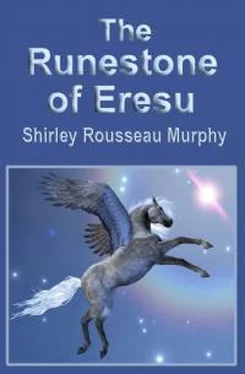
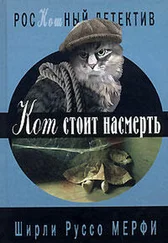
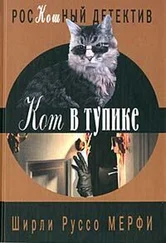
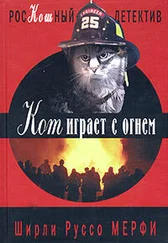
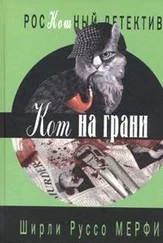

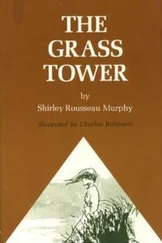
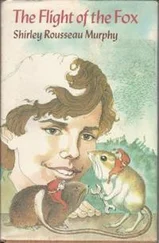
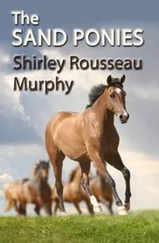
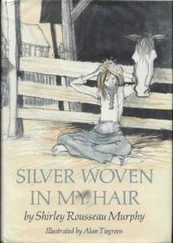
![Ширли Мерфи - The Shattered Stone [calibre]](/books/436059/shirli-merfi-the-shattered-stone-calibre-thumb.webp)
